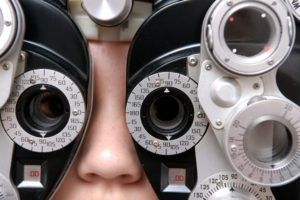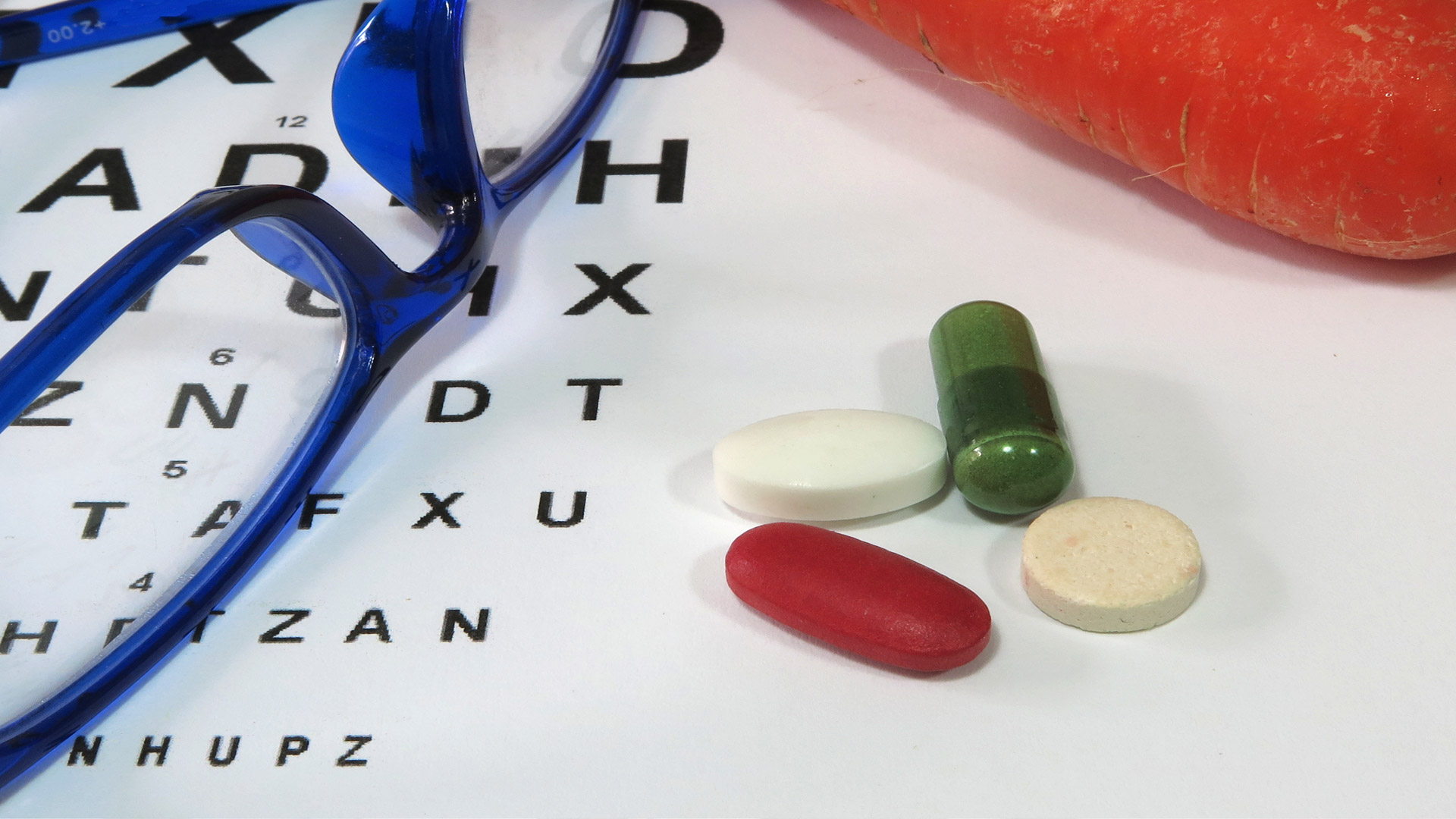 Eye supplements are nutritional products that contain vitamins and other nutrients that research has shown to be beneficial for maintaining eye health and good vision.
Eye supplements are nutritional products that contain vitamins and other nutrients that research has shown to be beneficial for maintaining eye health and good vision.
As their name suggests, eye supplements are designed to add to, not replace, nutrients you get from a healthful diet. Taking dietary supplements cannot completely make up for serious nutritional shortcomings of a poor diet and too much junk food, which are associated with many serious health problems, including vision loss.
What Is a “Healthy Diet” for Good Vision?
According to the Dietary Guidelines for Americans developed by the U.S. Department of Health and Human Services and the Department of Agriculture, a healthful diet:
- Emphasizes fruits, vegetables, whole grains and fat-free or low-fat milk and milk products.
- Includes lean meats, poultry, fish, beans, eggs and nuts.
- Is low in saturated fats, trans fats, cholesterol, salt (sodium) and added sugars.
But it’s common knowledge that most Americans don’t eat enough fruits, vegetables and other nutrient-rich foods, opting instead for high-calorie, low-nutrient alternatives that can be harmful to the body, including the eyes.
Taking a daily multivitamin and mineral supplement can help fill in the nutritional gaps in a less-than-optimal diet and may help protect you from degenerative diseases, including eye diseases such as macular degeneration and cataracts.
Recommended Ingredients in Vision Supplements
As research continues on the benefits of vision supplements in reducing the risk of eye problems (and perhaps in improving visual acuity in healthy eyes), it seems wise to supplement your diet with a daily eye supplement that contains many, if not all, of the following ingredients.
Most of these vitamins and nutrients may play a key role in reducing inflammation and oxidative changes associated with the development of degenerative diseases, including chronic and age-related eye problems:
- Vitamin A and beta-carotene. Vitamin A (and its precursor, beta-carotene) is necessary for night vision, wound healing and proper functioning of the immune system. Though supplemental beta-carotene has been associated with greater risk of certain cancers among smokers and previous smokers, obtaining a healthy amount of beta-carotene from natural food sources does not appear to elevate this risk.
- Vitamin B complex (including vitamins B1, B2, B3, B5, B6, B12 folic acid, biotin and choline). B complex vitamins may help reduce chronic inflammation and prevent elevated homocysteine levels in the blood, which have been associated with vascular problems affecting the retina. B vitamins also may play a role in reducing the risk of macular degeneration and in the treatment of uveitis, a common cause of blindness.
- Vitamin C. Some studies have found vitamin C, a powerful antioxidant, is associated with reduced risk of cataracts.
- Vitamin D. Recent literature suggests vitamin D deficiency is widespread, especially during winter months in cold climates. Research suggests vitamin D is associated with a lower risk of macular degeneration.
- Vitamin E. Another component of AREDS and AREDS2 supplements, vitamin E has been associated with reduced risk of cataracts in other studies.
- Lutein and zeaxanthin. These carotenoids and macular pigments may reduce the risk of macular degeneration and cataracts.
- Phytochemical antioxidants. Plant extracts, such as those from ginkgo biloba and bilberry, contain phytochemicals, which appear to provide protection from oxidative stress in the entire body, including the eyes.
- Omega-3 essential fatty acids. These essential nutrients may reduce the risk of dry eyes and may have other eye health benefits as well.
- Bioflavonoids. Found in many fruits and vegetables, bioflavonoids appear to help the body absorb vitamin C for higher antioxidant efficiency.
To order supplements for your eye health click here: www.sciencebasedhealth.com


